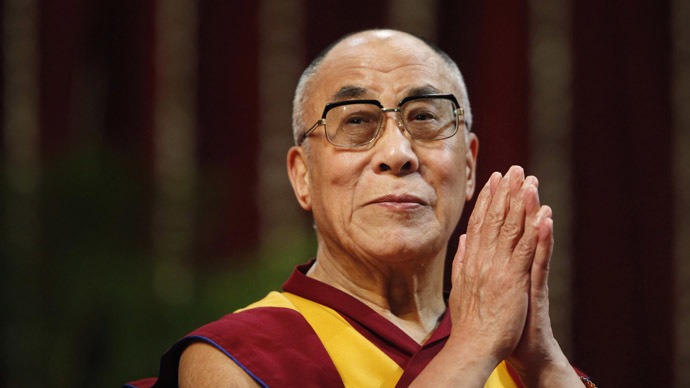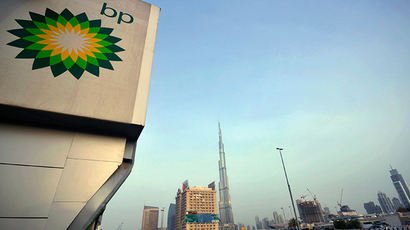Refusing rebirth: Beijing tells Dalai Lama to reincarnate in fight over successor

Beijing may be a fierce critic of the current Dalai Lama, but it is against having no Dalai Lama at all. That’s why China opposes the Dalai Lama’s plans not to reincarnate in a new body after his eventual death.
Tenzin Gyatso, the 14th spiritual leader of Tibet Buddhism, touched upon the sore point of his reincarnation in a Sunday interview with the German newspaper Welt am Sonntag, saying that the institution of Dalai Lamas may have become obsolete and that he may be the last person to hold the position.
“We had a Dalai Lama for almost five centuries. The 14th Dalai Lama now is very popular. Let us then finish with a popular Dalai Lama,” he said.
On Wednesday the Chinese Foreign Ministry criticized the comments, saying the succession of Dalai Lama should follow a “set religious procedure and historic custom.”
“The title of Dalai Lama is conferred by the central government, which has hundreds of years of history. The 14th Dalai Lama has ulterior motives, and is seeking to distort and negate history, which is damaging to the normal order of Tibetan Buddhism,” ministerial spokesperson Hua Chunying said.
The squabble continues a decades-long conflict between Beijing and the Dalai Lama, who has been living in exile since 1959, when the CIA helped him flee Tibet amid a bloody uprising and a Chinese crackdown on the insurgents.
In several interviews Tenzin mentioned his plans on the expected reincarnation, saying that he may not follow the custom to find a new body in China-controlled Tibet or not be reborn at all. On one occasion he said he would seek counsel of Tibetan Buddhist priests and the public on the matter when he is 90 years old.
Dalai Lamas are believed to belong to a line of reincarnations of the same person, with each using a conscious effort at the moment of his death to project his “mindstream” into an intended body. After the death a new incarnation of the Dalai Lama is searched for and tested over several years.
Beijing calls the current Dalai Lama a dangerous separatist and is opposing his influence on fellow Tibetans. This includes the choice of his would-be successor, as evidenced in the existence of two Panchen Lamas, one endorsed by the Dalai Lama and another by Beijing.
Panchen Lama is the second most important spiritual leader in the Tibetan Buddhism and among his many functions is being the final arbiter on whether a new incarnation of the Dalai Lama was actually found. In fact, on several occasions Dalai Lama and Panchen Lama take turns, naming each other’s subsequent incarnations.
In 1989, Tenzin proclaimed a boy named Gedhun Choekyi Nyima as the 11th Panchen Lama. But the Chinese government took him into protective custody and announced that Gyaincain Norbu was the real new incarnation, and was selected by a historically valid ceremony of drawing lots, which reportedly his predecessor preferred.
The issue remains a controversy, with the Tibetan government in exile accusing Beijing of kidnapping the Panchen Lama and Beijing blaming separatists of trying to use an innocent person for political gains.














